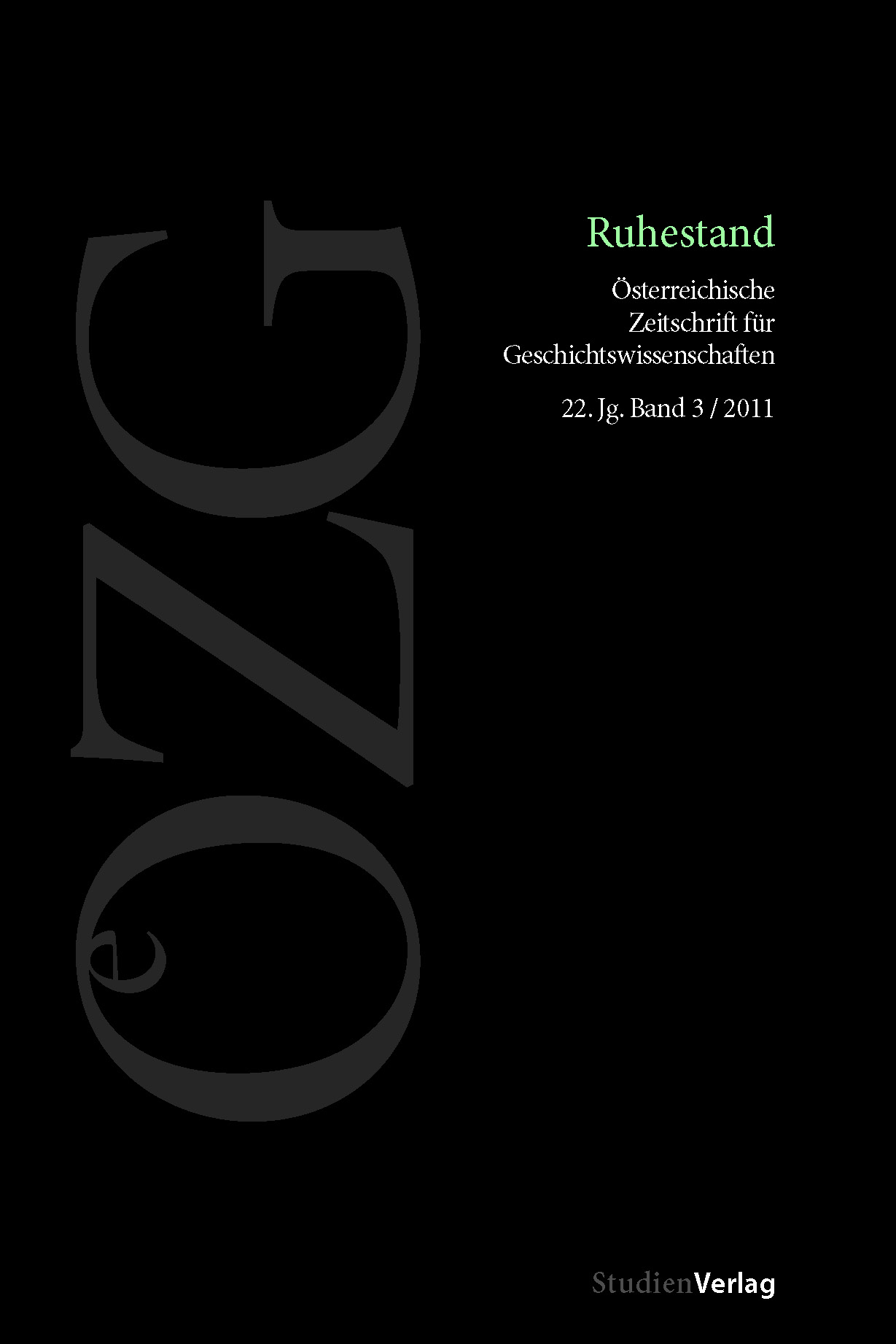Feierabend statt Ruhestand?
Über die Bedeutung des Ruhestandes in der Arbeiterschaft und in der Arbeiterbewegung in Deutschland um 1900
DOI:
https://doi.org/10.25365/oezg-2011-22-3-4Schlagworte:
Retirement, pensions, working classes, labour movement, German EmpireAbstract
The main hypothesis about the relationship of retirement and working classes is that a category of ‘retirement’ among workers did not exist until modern welfare pension systems were installed in the 20th century. This article argues that ideals and practices of retirement as a work-free period after crossing an age limit already occurred in the late 19th century among German workers in the context of the debate about the first old age- and invalidity act in 1889. In addition, by looking at work in its ambivalent meaning of delight and burden it becomes evident that workers could imagine to leave work and start a retirement in their life course while the labour movement was trapped between the position of admiring work as means for gaining respectability and condemning work as exploitation.


